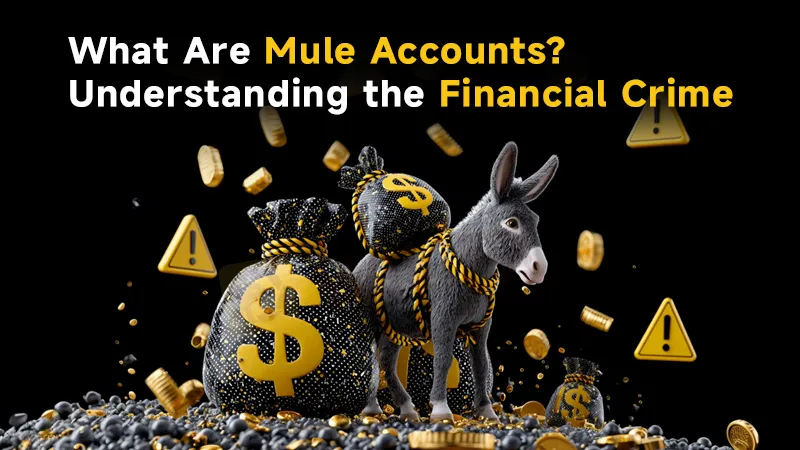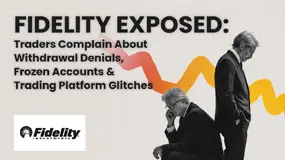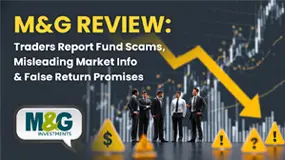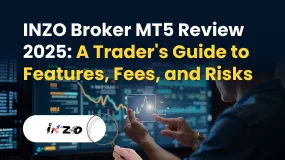简体中文
繁體中文
English
Pусский
日本語
ภาษาไทย
Tiếng Việt
Bahasa Indonesia
Español
हिन्दी
Filippiiniläinen
Français
Deutsch
Português
Türkçe
한국어
العربية
What Are Mule Accounts? Understanding the Financial Crime
Abstract:A Mule account is one of the tools used in the financial society. While the term may sound harmless, mule accounts are a central component in money laundering, investment scams, and cyber fraud, enabling criminals to move illicit funds through the global financial system without detection.

A Mule account is one of the tools used in the financial society. While the term may sound harmless, mule accounts are a central component in money laundering, investment scams, and cyber fraud, enabling criminals to move illicit funds through the global financial system without detection.
What Is a Mule Account?
A mule account refers to a bank or trading account used by criminals to transfer, receive, or hide illegally obtained money. The account holder may be a willing participant or an unwitting victim who believes they are performing a legitimate task, such as helping process payments for a job.
Essentially, a mule account acts as a buffer layer between the source of criminal funds and their ultimate destination, obscuring the money trail from regulators and law enforcement agencies.
How Mule Accounts Work
Money mules are recruited through various deceptive means, including:
- Fake job advertisements: Promising easy income for “processing transactions” or “acting as a local agent.”
- Romance scams: Victims are persuaded to receive and send funds on behalf of a supposed romantic partner.
- Social media and messaging apps: Fraudsters use platforms like Telegram, WhatsApp, or Facebook to recruit people with promises of quick commissions.
Once a victim agrees, criminals transfer illicit funds into the mules bank or trading account. The mule is then instructed to forward the money — often converting it into cryptocurrency or sending it overseas — keeping a small “commission.” In doing so, they unknowingly launder stolen money.
Types of Mule Accounts
There are typically three categories of mule accounts:
- Unwitting Mules: Individuals unaware they are laundering money, often victims of employment or romance scams.
- Witting Mules: People who suspect illegal activity but choose to ignore the warning signs.
- Complicit Mules: Fully aware individuals who willingly participate in criminal schemes for financial gain.
Why Mule Accounts Are Dangerous
Mule accounts dont just facilitate fraud, they also undermine financial stability and erode trust in digital banking and trading systems. They make it difficult for authorities to trace criminal proceeds and are often linked to:
- Investment scams
- Business email compromise (BEC)
- Identity theft
- Human trafficking and drug money laundering
Moreover, those who operate mule accounts face severe legal penalties. Even if someone claims ignorance, authorities in many countries hold account holders accountable for allowing their accounts to be used for money laundering.
How to Recognize and Avoid Mule Account Schemes
To protect yourself, its important to be aware of common red flags:
- Job offers requiring you to use your personal bank account for payments
- Online “friends” asking you to transfer money for them
- Promises of easy money with minimal effort
- Requests to share banking details with strangers
What Financial Institutions Are Doing
Banks and brokers worldwide are strengthening their anti-money laundering (AML) frameworks to detect mule accounts. Many now use:
- AI-based transaction monitoring
- Enhanced customer due diligence (CDD)
- Behavioral analytics to flag suspicious activity
Regulators such as the Financial Conduct Authority (FCA), Financial Crimes Enforcement Network (FinCEN), and AUSTRAC are also cracking down on mule networks by collaborating across borders to trace and freeze illicit funds.
Conclusion
Mule accounts might seem like a minor link in the global fraud chain, but they are crucial enablers of financial crime. By understanding how they work — and how to spot the warning signs — individuals and institutions can help prevent billions in losses tied to cybercrime and fraud.

Disclaimer:
The views in this article only represent the author's personal views, and do not constitute investment advice on this platform. This platform does not guarantee the accuracy, completeness and timeliness of the information in the article, and will not be liable for any loss caused by the use of or reliance on the information in the article.
Read more

Fidelity Exposed: Traders Complain About Withdrawal Denials, Frozen Accounts & Platform Glitches
Does Fidelity Investments prevent you from accessing funds despite numerous assurances on your requests? Do you witness an account freeze by the US-based forex broker every time you request withdrawal access? Do you struggle with an unstable trading platform here? Is the slow Fidelity customer service making you face forced liquidation? These issues haunt traders, with many of them voicing their frustration on several broker review platforms such as WikiFX. In this Fidelity review article, we have shared quite a few complaints for you to look at. Read on!

Exposing The Trading Pit: Traders Blame the Broker for Unfair Withdrawal Denials & Account Blocks
Did you receive contradictory emails from The Trading Pit, with one approving payout and another rejecting it, citing trading rule violations? Did you purchase multiple trading accounts but receive a payout on only one of them? Did The Trading Pit prop firm refund you for the remaining accounts without clear reasoning? Did you face account bans despite using limited margins and keeping investment risks to a minimum? These are some raging complaints found under The Trading Pit review. We will share some of these complaints in this article. Take a look.

M&G Review: Traders Report Fund Scams, Misleading Market Info & False Return Promises
Applying for multiple withdrawals at M&G Investments but not getting it into your bank account? Do you see the uncredited withdrawal funds out of your forex trading account on the M&G login? Does the customer support service fail to address this trading issue? Does the misleading market information provided on this forex broker’s trading platform make you lose all your invested capital? Were you lured into investing under the promise of guaranteed forex returns? These issues have become highly common for traders at M&G Investments. In this M&G review article, we have echoed investor sentiments through their complaint screenshots. Take a look!

INZO Broker MT5 Review 2025: A Trader's Guide to Features, Fees and Risks
INZO is a foreign exchange (Forex) and Contracts for Difference (CFD) brokerage company that started working in 2021. The company is registered in Saint Vincent and the Grenadines and regulated offshore. It focuses on serving clients around the world by giving them access to popular trading platforms, especially MetaTrader 5 (MT5) and cTrader. The company offers different types of trading instruments, from currency pairs to cryptocurrencies. It aims to help both new and experienced traders. Read on to know more about it.
WikiFX Broker
Latest News
Forex Expert Recruitment Event – Sharing Insights, Building Rewards
Admirals Cancels UAE License as Part of Global Restructuring
Moomoo Singapore Opens Investor Boutiques to Strengthen Community
OmegaPro Review: Traders Flood Comment Sections with Withdrawal Denials & Scam Complaints
An Unbiased Review of INZO Broker for Indian Traders: What You Must Know
BotBro’s “30% Return” Scheme Raises New Red Flags Amid Ongoing Fraud Allegations
The 5%ers Review: Is it a Scam or Legit? Find Out from These Trader Comments
WikiEXPO Dubai 2025 Concludes Successfully — Shaping a Transparent, Innovative Future
2 Malaysians Arrested in $1 Million Gold Scam Impersonating Singapore Officials
Is FXPesa Regulated? Real User Reviews & Regulation Check
Currency Calculator



